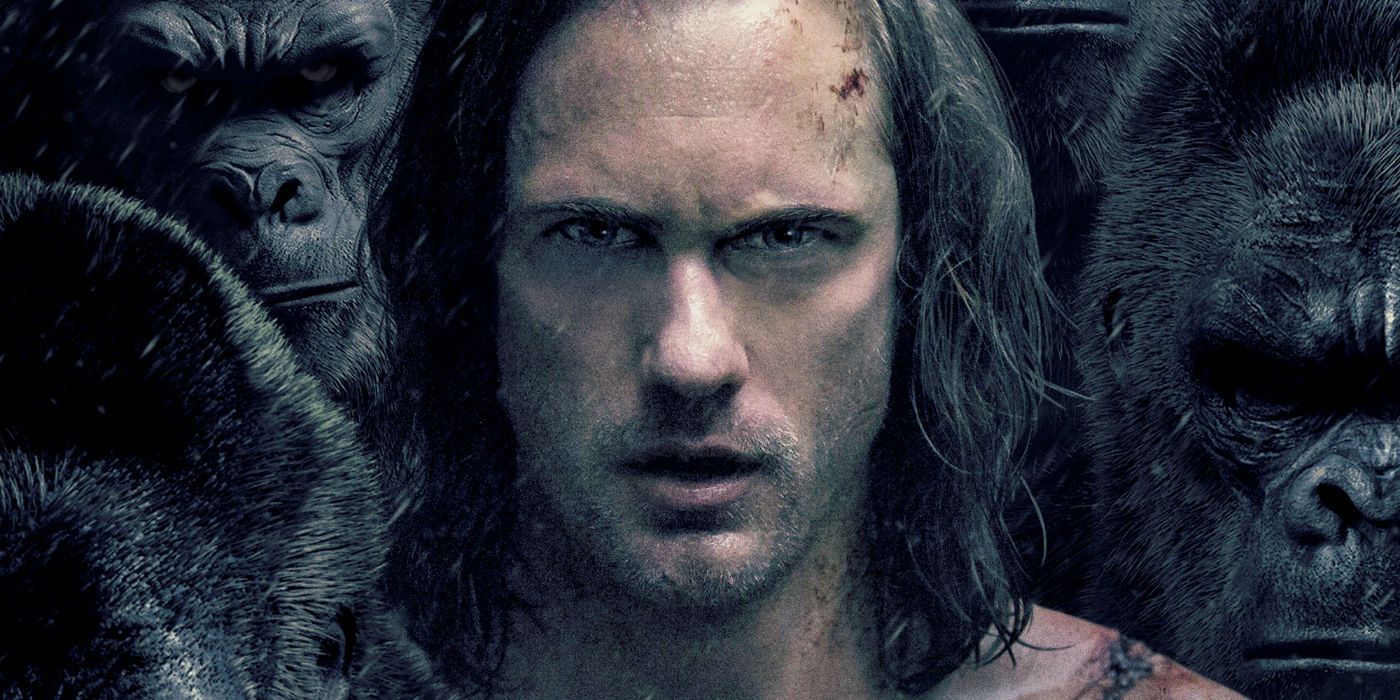Following Warner Bros. failed attempts at rebooting the property, Sony has now picked up the rights to adapt Tarzan for the big screen. First created by prolific author Edgar Rice Burroughs, Tarzan is the orphaned son of a British Lord and Lady who was marooned on the coast of Angola and was raised in the African jungle by a tribe of great apes. Over the years Tarzan’s story has been adapted countless times for film and television, beginning with the 1918 silent film Tarzan of the Apes and even inspiring an animated adaptation by Disney in 1999.
SCREENRANT VIDEO OF THE DAY
In 2016 Warner Bros. was the last major studio to attempt to reinvigorate the Tarzan franchise with Harry Potter and Fantastic Beasts director David Yates. While Yates’ The Legend of Tarzan featured an all-star cast that included Alexander Skarsgård, Margot Robbie, Christoph Waltz, and Samuel L. Jackson, the studio reportedly lost an estimated $40 million on the film and the result was savaged by critics. While Warner Bros. had initially hoped the film would spawn a sequel, those plans were shortly dashed following The Legend of Tarzan’s disappointing release.
Now it seems that Sony is looking to pick up where Warner Bros. had left off and is the most recent studio to acquire the film rights to the Tarzan property. According to THR, Sony has purchased the rights from the Burroughs estate with the intention of undertaking a “total reinvention” of the character and property. At this stage, no screenwriter or director has been attached to the project.
Can Sony's Tarzan Avoid Warner Bros' Failures?

Given the problems Warner Bros. had in making their Tarzan relevant to modern audiences, it is perhaps not surprising that Sony is looking at a “total reinvention” of the character. While Tarzan has long been a central figure in pop culture and cinematic history, he was created at a time which supported very different views on issues of colonialism, race, and gender. For audiences in the 21st century, a faithful adaptation of the original source material would raise multiple issues for modern viewers based on antiquated world views associated with the characters. While Yates’ film made some attempts at addressing these concerns, it ultimately delved back into problematic territory by conjuring a film with a white savior complex at its core.
Exactly how Sony envisions being able to update Tarzan’s character for modern sensibilities remains to be seen, but whichever filmmakers they tap to helm the project will have a daunting task ahead of them. Ultimately, Tarzan is a product of a bygone era and any attempts to modernize him will need to navigate a highly sensitive political and cultural landscape. Hopefully the next creative team to tackle the character will possess the nuance necessary to successfully bring Tarzan into the 21st century.
